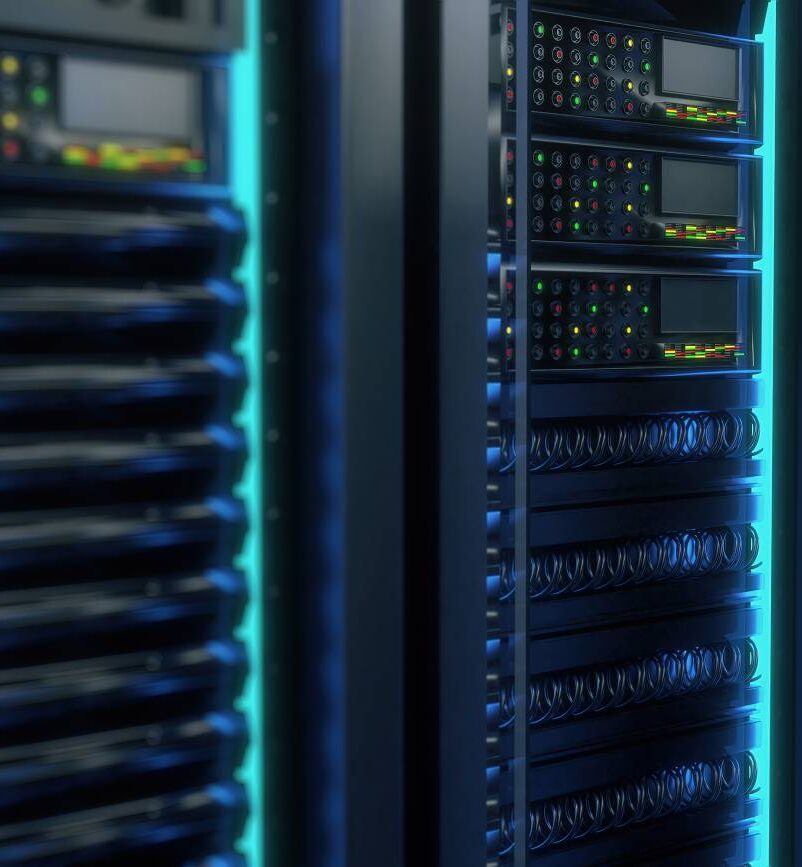
Australians are already experiencing job losses amid the artificial intelligence revolution – and many more across the country have been warned to prepare for a new reality.
A 2023 survey revealed more than a third of Aussie small businesses already have, or are planning to, replace some of their workforce with AI.
The survey found that 56 per cent of small business operators believe that AI will either reduce the number of people they employ or are unsure about the impact it will have on employee numbers.
AI use by small businesses is growing, with 41 per cent of Aussie small businesses saying they use it, compared to just 26 per cent of UK small businesses.
Of those Aussie small businesses using AI, the top three functions it’s being used for are administration tasks (39 per cent), creative writing (28 per cent) and drafting internal or company communications (20 per cent).
This week, one employee who used to work in wine subscription sales spoke about 121 positions that were recently made redundant in his field.
“All our jobs were replaced by chatbots, data scraping and email,” the anonymous worker said via the ABC.
“We all got AI-ed.”
The redundant worker said his former company, Endeavour Group, sold the job cuts as part of a wider plan to become a more “digitally-led offering”.
But he says it was clear the rapid advancements in artificial intelligence had made online customer service workers obsolete in the eyes of the company’s executives.
“From the perspective of anyone who was made redundant, there was nothing ambiguous going on. It’s pretty interesting to watch them twist themselves in knots to not say ‘AI’ when that’s exactly what it was,” he said.
“There were people in their 60s who had been doing it forever, saying, ‘I don’t know what I’m going to do now.‘”
AI-related job losses often go unnoticed as employers attribute cuts to various factors and avoid explicitly mentioning AI. Reductions in work hours, rather than outright job losses, also contribute to the hidden impact of AI on employment in Australia.
Despite the obvious problem of those being forced out of a job, business analysts believe artificial intelligence is actually creating more jobs than it eliminates, for the time being.
Jobs in the AI field have seen a whopping five-fold increase since 2017, and a doubling of jobs in 2023 alone.
While nobody can know for certain what the landscape looks like in 10 years, industry analysts have warned workers to adapt to the storm as technological disruption in the labour market continues.
Some occupations, like telemarketers, educators, events professionals and some legal professionals that have been pinned as particularly vulnerable.
Earlier this year, Morgan Stanley Capital International ranked US industries by their estimated share of employment that could be exposed to AI-driven automation, using data from Goldman Sachs Global Investment Research.
Office and administrative support is at the top of the list, with an estimated 46 per cent of these jobs in the US facing potential replacement by AI-driven automation.
In Australia, there are 415,300 people whose main job is in administrative and support services, according to Jobs and Skills Australia’s latest labour market update in February.
If 46 per cent of the Australian industry were at risk of AI-driven automation like the analysis predicts for the US, more than 191,000 Aussie jobs could be in trouble in this one industry alone.
“Many common tasks in these roles, such as scheduling meetings, writing reports and data input are likely to be fully automated in the future,” the analysis says.
As expected, MSCI reported industries that rely heavily on manual labour will be impacted the least.
While some believe we have adopted AI too quickly, others say Australia should be investing more to maximise the benefits as the tech tide rolls in. The cutting edge technology, which is now in the hands of children as young as kindergarten, has immediately sent a shockwave through the education system.
Group of Eight chief Vicki Thomson sounded the alarm on the government’s need to step up on innovation during a parliamentary inquiry into the use of generative AI in the education sector.
But university peak bodies agreed equity and fair access to the groundbreaking technology should be front and centre of any future government response.
Ms Thomson said there was “no question” generative AI would shake up higher education but providers needed to be ahead of the curve.
“What is concerning, given this is such an important, subject is that Australia is lagging behind competitor nations when it comes to our investment in AI and indeed research more broadly,” she told the inquiry.
The federal government committed $100m in the last budget towards helping businesses to integrate quantum and AI tech.
It’s compared to the European Union’s €20 billion per-year target towards AI to 2030.
“We’ve got a lot of ground to make up,” she added.


